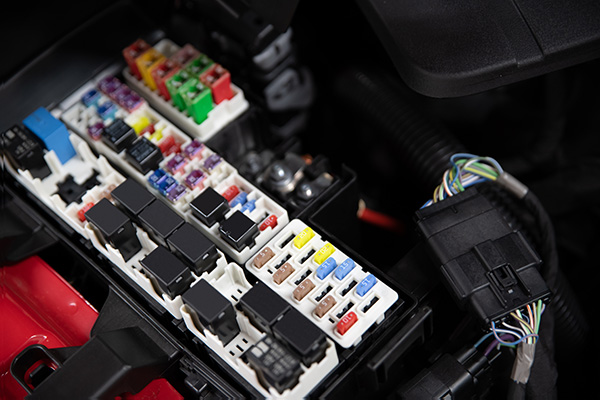
Car electrical issues can be frustrating and difficult to deal with, especially when they interfere with the functionality of your vehicle. Whether it’s a faulty battery, unresponsive lights, or a malfunctioning infotainment system, electrical problems often disrupt your driving experience and demand immediate attention. But how are these issues diagnosed and fixed efficiently?
Why Car Electrical Issues Need Prompt Attention
Your car’s electrical system is the backbone of its operations, powering everything from the ignition to the headlights and air conditioning. When something goes wrong, it doesn’t just impact your comfort—it can compromise your safety. Ignoring electrical problems can lead to more significant issues, including complete system failures. This is why a prompt and accurate diagnosis is crucial.
How Do Experts Pinpoint the Problem
Diagnosing electrical issues requires specialized tools and expertise. Here’s how professionals approach the task:
1. Gathering Initial Information
Technicians start by asking about the symptoms you’ve experienced. Are your dashboard lights flickering? Is your car struggling to start? Understanding the problem helps narrow down potential causes.
2. Visual Inspection
A visual check of the wiring, fuses, and battery often reveals apparent issues like corroded terminals, loose connections, or damaged wires. This step helps rule out minor problems before diving deeper.
3. Using Advanced Diagnostic Tools
Professionals rely on diagnostic tools like multimeters, circuit testers, and scan tools to evaluate the electrical system’s performance. These devices allow technicians to measure voltage, current, and resistance, helping them identify faults in circuits and components.
4. Reviewing the Vehicle’s Computer System
Modern cars come equipped with onboard diagnostic (OBD) systems. Using a scan tool, technicians can retrieve error codes from the system, providing insights into the root cause of the electrical issue.
Common Electrical Problems and Their Solutions
Car electrical issues can stem from various sources. Here are some of the most common problems and how professionals address them:
1. Dead or Weak Battery
A failing battery is one of the most frequent culprits behind electrical issues. Signs of a weak battery include slow engine cranking and dim headlights. Testing the battery’s charge and replacing it if necessary ensures your vehicle gets back to functioning properly.
2. Faulty Alternator
The alternator is responsible for charging the battery and powering the car’s electrical systems. If it fails, the battery can quickly lose power. Technicians test the alternator’s output and replace it if needed to restore the system’s efficiency.
3. Blown Fuses or Damaged Wiring
Fuses protect your car’s electrical circuits, but they can blow out when overloaded. Damaged or frayed wires can also cause shorts or open circuits. Replacing blown fuses and repairing or replacing faulty wiring are common fixes.
4. Malfunctioning Sensors or Modules
Modern vehicles rely heavily on sensors and control modules. When these components fail, they can trigger various issues, such as warning lights or non-functional features. Reprogramming or replacing the faulty parts is often required.
Why Expertise Matters in Fixing Electrical Issues
While some minor electrical problems can be resolved at home, most require professional expertise. Modern vehicles are equipped with complex electrical systems, and tampering with them without proper knowledge can lead to further damage. Certified technicians have the training and tools to diagnose and fix issues accurately and efficiently, saving you time and money in the long run.
In Newport News, VA, where unpredictable weather and coastal conditions can contribute to wear and tear, having a trusted repair shop handle your car’s electrical problems ensures reliable solutions.
Preventing Electrical Problems
Preventive maintenance goes a long way in avoiding electrical issues. Here are some tips to keep your car’s electrical system in good shape:
- Inspect the Battery Regularly: Check for corrosion on terminals and ensure it holds a sufficient charge.
- Test the Alternator: Have your alternator inspected during routine maintenance to catch any issues early.
- Avoid Overloading the Electrical System: Don’t use too many aftermarket devices that can strain the system.
- Pay Attention to Warning Signs: Flickering lights, slow cranking, or unusual sounds can indicate electrical problems that need immediate attention.
Is your car showing signs of electrical trouble? B & L Automotive in Newport News, VA, is here to help. With advanced diagnostic tools and experienced technicians, we’ll identify and fix the problem quickly. Contact us now to book your inspection!